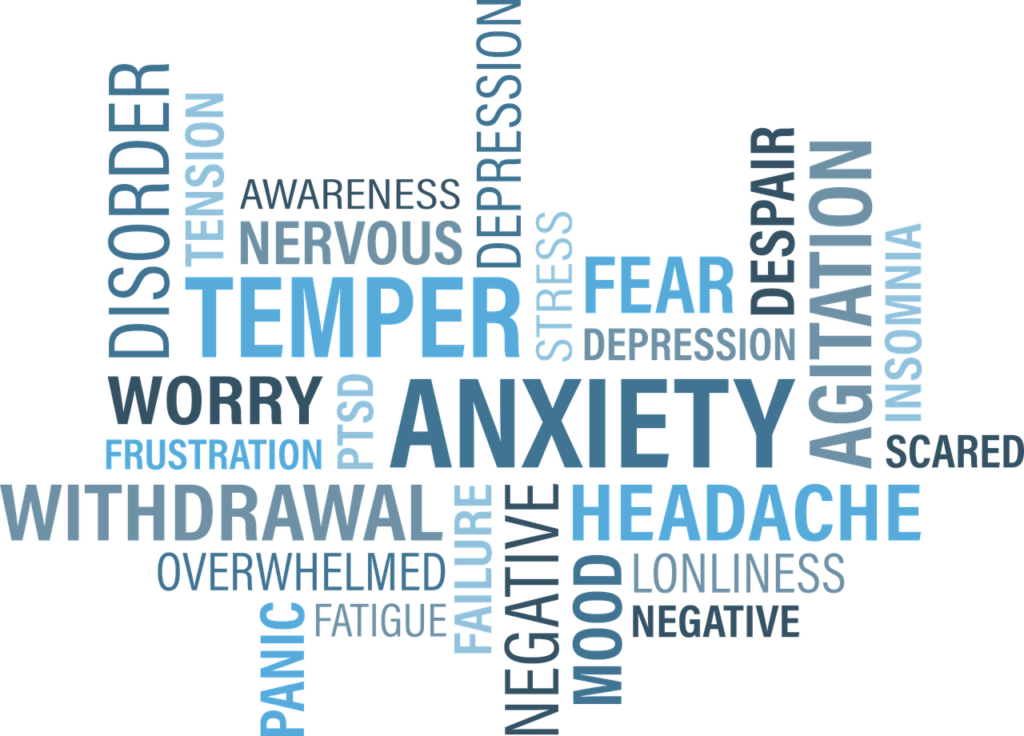
Today, we are going to review some facts about mood disorders to give you more clarity around symptoms and signs.
Do you suffer from extreme highs and lows? Do you believe you are experiencing depression or anxiety? You could be suffering from a mood disorder. These days, mental health diagnoses have become a popular topic, and there is a lot of misinformation out there. It can be confusing to figure out when it is time to see a professional for an evaluation.
What Is A Mood Disorder?
Mood disorders are characterized by the highs and lows of an individual’s emotional state. Normally, an individual suffering from a mood disorder experiences emotional extremes for at least a couple of weeks. Statistics show that at least 20% of adults struggle with a mood disorder at some point in their lives. Mood disorders can not only affect an individual mentally, but they can also affect physical health if left untreated.
What Are The Different Types Of Mood Disorders?
All mood disorders are characterized by an individual’s emotional patterns. Those with mood disorders experience much more intense emotions over a longer amount of time. Research shows that chemical imbalances in the brain are most likely the root cause of mood disorders. Individuals can also be predisposed to mood disorders if there is a family history of them. Mood disorders can affect individuals of any age including children, teenagers, adults, and young adults. Mood disorders do not discriminate and anyone can begin to experience symptoms at any time. It is important to understand the facts about mood disorders in order to seek help as soon as possible if you believe you are experiencing symptoms.
Depressive Disorders
Depressive disorders are characterized by intensely low moods and emotions over a minimum of at least two weeks. Clinical depression and dysthymia is a very common form of depressive mood disorder. It can affect every aspect of someone’s life. There are many different types of depressive disorders, and episodes can last two years or more. It is extremely important to seek professional help if you are experiencing extremely low moods for longer than normal, as early intervention is ideal for all mood disorders.
Common symptoms of a depressive disorder include:
- Constant anxiety or sadness
- A feeling of emptiness
- Hopelessness
- Suicidal thoughts
- Chronic fatigue
- Insomnia
- Exhaustion and oversleeping
Seasonal Affective Disorder
Some people suffer from extreme mood shifts during seasonal changes. A lack of sunlight is normally a contributing factor for seasonal affective disorder. Common symptoms of seasonal affective disorder are increased sleep, weight gain, and isolation.
Bipolar Disorder
Bipolar disorder is another serious mood disorder. This disorder is characterized by very dramatic changes in activity levels, emotions, and energy levels. Also, bipolar disorder is known as manic-depression and it can be extremely disruptive to individuals’ lives. Bipolar disorder normally follows the pattern of extremely depressive states followed by manic states. Bipolar disorder has an enormous impact on the suffering individual, as well as the individuals around them. Additionally, bipolar disorder is categorized into three separate diagnoses. The first category is Bipolar I, this type of Bipolar disorder consists of manic episodes lasting at least seven days. Individuals often experience a minimum of seven days of depressive episodes. Bipolar II disorder is characterized by depressive states and hypomania. Hypomania is a less intense form of mania. Cyclothymia is the last type of Bipolar disorder. Individuals with this form of bipolar disorder normally experience hypomanic and depressive states for at least two years or more.
Common symptoms of Bipolar disorder are:
- Increased energy
- Anger and irritability
- Feelings of euphoria
- Insomnia
- Racing thoughts
- Overly talkative
- Risky and impulsive behavior
- Poor financial decisions and overspending
Treatment Options For Mood Disorders
There are a multitude of different treatment options for mood disorders, and it is extremely important to seek treatment as soon as possible in order to get the help that the individual needs. Mood disorders can be extremely serious if left without the proper treatment. They can lead to suicide, drug abuse, loss of relationships, loss of employment, and many other serious consequences. Treatment options for mood disorders include residential care, partial hospitalization, intensive outpatient, and outpatient therapy. There are also different modalities of therapy that can be used to treat mood disorders. Some of these types of therapy include cognitive behavioral therapy, and dialectical behavioral therapy. Understanding the facts about mood disorders can help you to seek the right treatment for yourself or your loved one. At Arbor Wellness we take the time to evaluate each one of our clients and determine the best level of care and type of therapy for them.
Mood Disorder Treatment In Nashville, TN
Now that you understand the facts about mood disorders you can make an educated decision about whether or not you may need treatment. Even if you identify with some and not all of the common symptoms of mood disorders, it is important to be evaluated by a licensed professional. Here at Arbor Wellness in Nashville, TN we offer a wide range of treatment options for those suffering from mood disorders. We take the time to meet with our clients and do a thorough evaluation, before working with them on an individualized treatment plan. We want to see each of our clients start living healthy and fulfilling lives, while also properly treating their mood disorder. If you believe yourself or your loved one is struggling with a mood disorder call our admissions team to schedule an evaluation today.









